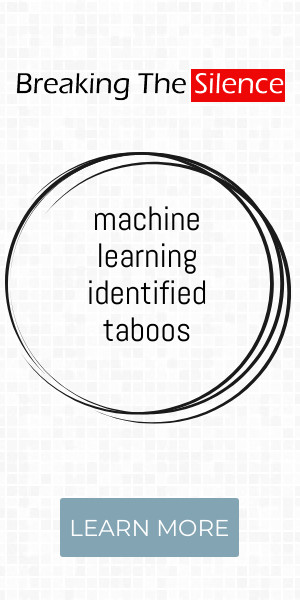Kenyan media exploded with a disturbing story last month: «Close to 4,000 school girls impregnated in Kenya during COVID-19 lockdown», read one headline.
The articles all cited data from a recently released Kenya government health information survey, and most attributed the high pregnancy numbers to the COVID-19 lockdown.
Since the pandemic hit Kenya in mid-March, healthcare providers have been warning about its potential to increase rates of teenage pregnancies.
In Kenya, high-risk early pregnancy has long been a societal challenge.
Underpinning any COVID-19-related rise in teen pregnancies are other significant challenges, including insufficient funding for reproductive health services and a lack of comprehensive sex education in schools – which have contributed to Kenya’s alarming numbers.
Last September, Ashley Okoth*, a high school student living in a remote village in western Kenya, boarded a public bus to travel to the nearest city to visit her aunt.
Elizabeth Mariara is a nurse running a reproductive health clinic in rural Kenya.
Siddharth Chatterjee, the UN resident coordinator in Kenya, warned that individual, anecdotal cases should not be used to extrapolate a national pattern.
The US government has historically been a major contributor to Kenya’s healthcare budget.
But since President Donald Trump reinstated and expanded the policy that prohibits funding to NGOs that offer counseling, referrals, or services related to abortion — often referred to as the Mexico City policy or the global gag rule — Kenyan reproductive health and family planning organisations have struggled with reduced financing.
Some have had to close their doors, according to the NGO Family Health Options Kenya.

The Reproductive Health Network Kenya , a group of pro-choice health providers and advocacy organisations, purchases contraceptives and other healthcare items and distributes them to smaller providers across the country.
In 2013, the Kenyan government committed to scaling up sex education, beginning courses in primary schools.
«Parents told us, ‘Those things are taught in school. We do not talk to our children about sex. That is a taboo. So we expect that the teachers should tell our children about sex and about how to protect themselves,’» said Mercy Chege, director of programmes at Plan International, an NGO advocating for children’s rights and girls’ equality.
Kenya’s parliament is currently debating legislation mandating age-appropriate sex education in schools.
But religious leaders and cultural conservatives have launched an aggressive campaign against the bill, arguing that such a curriculum runs counter to Kenyan cultural values.
A 2017 Kenyan study into maternal deaths revealed that nine percent of women who died in the hospital were teenagers.
Of pregnant teenagers who survive childbirth, nearly 98 percent drop out of school, research conducted in Kenya last year by Plan International shows.
And, she warns, the legacy of high teenage pregnancy rates will almost certainly outlast the coronavirus in Kenya.
The taskforce handed the report to the government on July 7 after working ably for eight months on this topical matter in Kenya today.
Ill health and psychosocial disability are the two major sources of mental health problems in Kenya.
Yet, it is paradoxical that Kenyans still understand mental health and mental illness issues from spiritual and cultural perspectives.
Such expressions of odd behaviour, or spiritual possession, are explained in terms of taboos, curses and other paranormal phenomena.
Popular media, such as television or radio or even film, are major avenues for perpetuation of this social stigma against mental health across Kenya.
Chinua Achebe’s Arrow of God, Nawal El Saadawi’s The Innocent of the Devil and Bessie Head’s A Question of Power offer classical literary treatments of the taboo subject.
Standing on such steps of conscience with this voice from the lost generation of apartheid South Africa, Kenyans ought to open up public discourse on mental matters around us today.
To couch the topic on traditional perspectives of taboo and stigma is to aggravate an ongoing disaster.
Kenyans battling with aspects of mental illness should not be forgotten, even as the Covid-19 pandemic soars across the country.
But if Kenya overturns a ban on gay sex this Friday, he’s going clubbing to celebrate — with the full protection of the law.

Twenty-eight-year-old Kasanda is one of thousands of gay Kenyans hoping judges will strike down a colonial-era law punishing consensual same-sex relationships by 14 years in jail.
Same-sex relationships are illegal in more than 70 countries, almost half of them in Africa, where homosexuality is broadly taboo and persecution is rife.
Kenya arrested 534 people for same-sex relationships between 2013 and 2017, the government said.
Kenya’s high court began hearings on the law last year.
Campaigners say the colonial-era law violates Kenya’s progressive 2010 constitution, which guarantees equality, dignity and privacy for all citizens.
Decriminalization won’t stop prejudice, but it should end arrests and blackmail, and help rein in assaults and rapes if gay Kenyans no longer fear police, said the National Gay and Lesbian Human Rights Commission, one of the petitioners against the law.
The commission has has recorded more than 1,500 such attacks against lesbian, gay, bisexual and transgender Kenyans since 2014.
«A gay lifestyle is a threat to our culture and the common good,» said Charles Kanjama, a lawyer for the Kenya Christian Professionals Forum.
In recent years, Kenya’s small openly gay community has grown, including a prominent writer, a journalist, and several activists, although gay public events are rare.
Last year a court temporarily lifted a ban to allow a locally-made film called «Rafiki», which portrayed a lesbian relationship in Kenya, to compete at the Oscars.
President Uhuru Kenyatta has said «gay rights is really a non-issue», while deputy president William Ruto said Kenya had «no room» for gays.
Many Kenyans, like retired military officer Stanley Muigai Kiama, say they will reject gay people regardless of any court ruling.
Forgotten Women: Ending FGM in Kenya Nice Nailantei Leng’ete talks to schoolgirls about the importance of education Nice with a Maasai community organised a homecoming ceremony for her when she returned from the TIME 100 gala in April 2018 welcomes Dr. David Nkedienye, the governor of Kajiado County at the time, to the official part of an Alternative Rite of Passage ceremony in Rombo, Kenya.
His presence was a sign of acknowledgment and encouragement Anja Ligtenberg Forgotten Women: Ending FGM in Kenya Alternative Rite of Passage ceremony Nice helps young girls prepare for their Alternative Rite of Passage ceremony Anja Ligtenberg A portrait of human rights activist Nice Nailantei Leng’ete Steve Murigi
The fact that her work has been considered revolutionary – a selection of interviews and photographs from Womanhood have already been published in several media outlets to great praise – she says, points to a wider problem with the way female sexuality is framed as taboo in society.
«I’m using a physical taboo to open up a conversation about social and emotional taboos».
The five biggest taboos surrounding female sexuality
Dodsworth’s project comes at a time when the consequences of such taboos seem more relevant than ever.
NAIROBI – There is a quiet air of excitement at the offices of the National Gay and Lesbian Human Rights Commission , as the countdown draws closer to Friday when a much-awaited ruling by Kenya’s High Court could make history.
The charity has fought hundreds of cases of abuse against sexual minorities in Kenya’s courts, but the verdict on whether to scrap British colonial-era laws criminalizing gay sex is undoubtedly their most eagerly anticipated case.
«A positive ruling will mean sexual minorities in Kenya will have the freedom to exist. It will be a step toward their inclusion in society. We feel we have a very solid case».
Homosexuality is taboo in the East African nation and persecution of sexual minorities is rife.
Under sections of Kenya’s penal code, gay sex – or «carnal knowledge against the order of nature» – is punishable by up to 14 years in jail.
A positive judgment would not only give rights and dignity to sexual minorities in Kenya, say campaigners, but will inject impetus into battles being waged by persecuted LGBT+ people Africa wide.
«People across the continent are watching the Kenyan case very closely,» said Anthony Oluoch from Pan Africa ILGA, a global charity advocating for the rights of sexual minorities.
«There are laws in many African countries that criminalize same-sex relationships, so if we get a positive ruling in Kenya it will give hope to the continent».
The law against gay sex in Kenya – sections 162 and 165 – was introduced during British rule more than 120 years ago.
In 2010, Kenya adopted its new constitution, which provides for equality, human dignity and freedom from discrimination.
The Kenyan government, backed by powerful Christian groups, however is opposed to scrapping the ban on gay sex, have argued during court hearings last year that it will lead to same-sex marriage.
Since the date of the ruling was announced in October, LGBT+ activists across the world have been counting down the days on social media with hash tags such as #WeAreAllKenyans, #LoveIsHuman and #Repeal162.
«This judgment has real potential to change the lived experience of hundreds of thousands of people in Kenya,» said Tea Braun, director of the UK-based campaign group, the Human Dignity Trust.

«A positive verdict will declare that LGBT+ people are not criminals. It will be a reckoning for society where Kenya will show the world that it upholds the principals of freedom, liberty and justice».
Campaigners say their optimism is justified – pointing to recent progressive rulings by courts as well as governments across the world supporting the rights of LGBT+ people – which they believe Kenya’s judges will consider.
The fact these moves came from countries in the developing world – which Kenyans can easily identify with – rather than Western nations which are often blamed for «importing homosexuality», should lie in their favor, say petitioners.
There has even been progress at home, they add, citing a ruling by Kenya’s Court of Appeal in March which found it illegal to force people suspected of being homosexual to undergo anal examinations.
Same-sex relationships are considered taboo and are a crime across most of the continent, with punishments ranging from imprisonment to death.
«Kenya is an important and influential country in Africa and there has been a lot of conversation around the continent about the court case,» said Bisi Alimi, a Nigerian gay rights activist who was forced to flee persecution and seek asylum in Britain.
I spent the past three months of the trip in Africa, visiting Egypt, Morocco, Nigeria, Kenya, and Tanzania.
I spent the past three months of my travels in Africa, specifically in Egypt, Morocco, Nigeria, Kenya, and Tanzania.
The last unmentionable taboo, MENSTRUATION! *gasp*.
Menstrual taboos are so deeply rooted in Rwandan culture; we have developed harmful, even destructive ideas and beliefs about menstruation.
Taboos do not just affect how societies relate to menstruation, menstruation stigma is one of many systemic factors that perpetuate gender inequality, it is one of the large ones we frequently ignore.
In 2004 Kenya repealed its value added tax on pads and tampons to lower the price consumers pay.
And since 2011, the Kenyan government has been budgeting about $3 million per year to distribute free sanitary pads in schools in low-income communities.
If Kenya can do it, why can’t we?
After a delayed yet highly-anticipated ruling in the courts, the Kenyan High Court has ruled against decriminalising same-sex relations, to the dismay of gay rights campaigners.
The law banning same-sex relations has been on the books since the British colonialised Kenya in the late 1800s.
The large grassroots effort in Kenya by the vocal LGBTQ community sees the ruling as a setback, not only for Kenya, but for the continent as a whole.
Homosexual relationships are seen as taboo in Kenya and in many countries throughout Africa.
In Kenya, a person convicted of same-sex relations could be sent to prison for up to 14 years, like in Nigeria.
«My message to the people of Kenya is to fight on for greater equality for all, and never give up,» said Bachelet.
YAOUNDE – From delivering a TED talk in a tutu to coming out in a country where homosexuality is deeply taboo, Binyavanga Wainaina was a champion of the LGBT+ cause in Africa, campaigners said as they paid tribute to the Kenyan writer, who died this week aged 48.
«I can give them as an example and say, here’s one person, who is African, Kenyan, East African who is gay and accomplished, and recognized all over the world and has made it within his craft – and you can also make it like him».
Wainaina came out as gay in 2014 – a major step in Kenya, where homosexuality remains taboo in many circles and gay sex is illegal.
Kenya’s Supreme Court is due to rule later on Friday on a challenge to that law, which campaigners say violates the country’s progressive 2010 constitution guaranteeing equality, dignity and privacy for all citizens.
The text of this article was generated by the Breaking The Silence system that collected 9 news articles posted on the web from January 2019 to September 2020 and clustered for the taboo subjects related to Kenya















































































